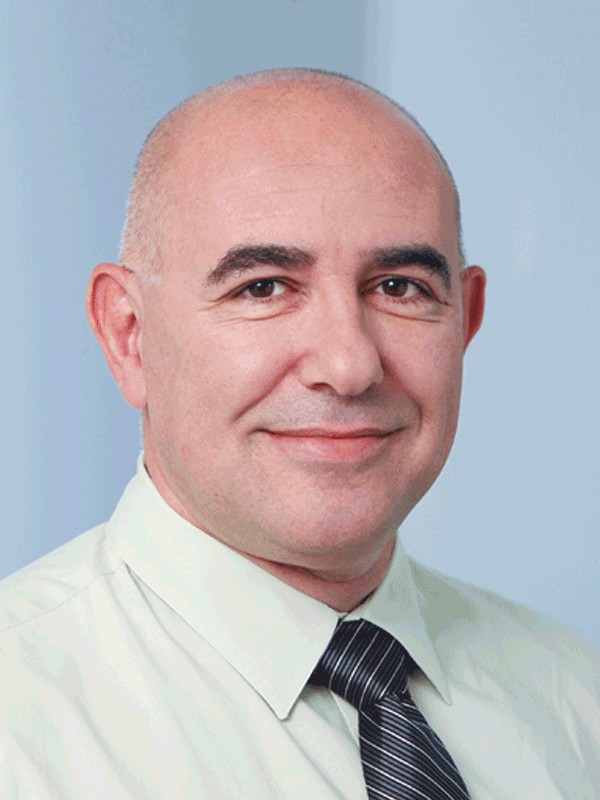Prof. Dr. Mustafa Hani Khammash

Prof. Dr. Mustafa Hani Khammash
Full Professor at the Department of Biosystems Science and Engineering
ETH Zürich
Regelungstheorie u. Systembiologie
Biography
Dr. Khammash is Professor of Control Theory and Systems Biology in the Department of Biosystems Science and Engineering (D-BSSE) at ETH-Zurich. He received his B.S. degree from Texas A & M University in 1986 and his Ph.D. from Rice University in 1990, both in Electrical Engineering. In 1990, he joined the Electrical Engineering Department at Iowa State University. While at Iowa State University, he created the Dynamics and Control Program and led that control group until 2002, when he became a member of the Mechanical Engineering faculty at the University of California, Santa Barbara. In Santa Barbara, he served as Vice Chair of the Mechanical Engineering Department from 2003 to 2006 and as the Director of the Center for Control, Dynamical Systems and Computation from 2005 to 2011. In 2011 Prof. Khammash moved with his group to Switzerland, joining the Department of Biosystems Science and Engineering at ETH Zurich. At ETH Zurich he served as Vice Chair of the Department of Biosystems Science and Engineering from 2013 to 2015 and as the head of the Department of Biosystems Science and Engineering from 2015 to 2017.
Dr. Khammash works at the forefront of research in the areas of control theory, systems biology, and synthetic biology. His research aims to understand the role of dynamics, feedback, and randomness in biology, and to develop the tools needed to aid in this understanding. Work in his lab focuses on the creation of novel computational methods for the modeling, simulation, analysis, and control of biological networks, with particular attention to stochastic systems. His group has successfully applied these methods to shed new light on various biological systems. More recently, Prof. Khammash's group has been pioneering the development of the field of Cybergenetics in synthetic biology, where they have developed new foundational theory, computational methods, and experimental tools for the real-time control of the dynamic behavior of living cells, with applications to industrial biotechnology, tissue engineering, and medical therapy.